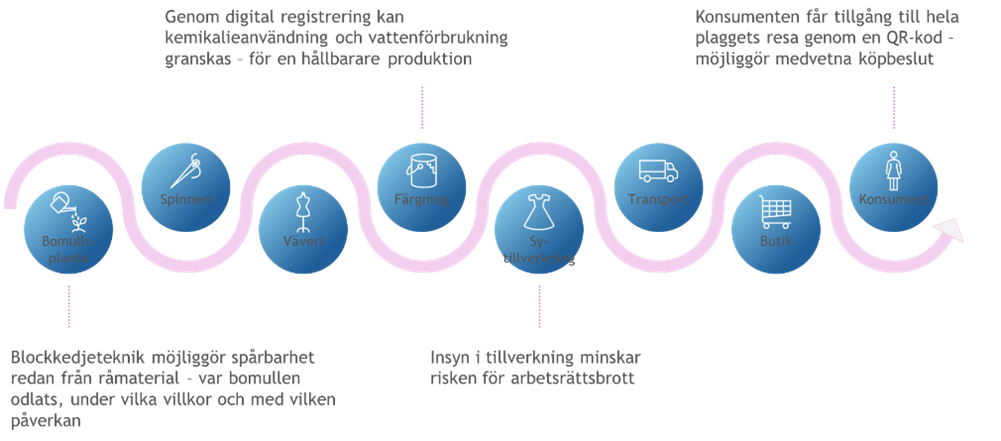
2025-06-01
The future of textiles: Innovation, sustainability and the power of women
On May 10, the climate committee within District 21 organized the second and final inspirational event about the climate this spring. Three young, former Women in Business scholarship holders gave us their different aspects on the theme “The future of textiles: Innovation, sustainability and the power of women” for about an hour.
Emilia Bylund Mansson, management consultant at Boston Consulting Group, described how digitalization and AI are paving the way for the sustainable value chains of the future by creating opportunities to solve the biggest challenges, such as transparency in supply chains, as well as carbon emissions from transportation and indirect sources. For example, she showed how so-called blockchains can increase transparency and drive sustainability.

Golzar Daneshzad, founder and CEO of Globalizer AB, took the floor and talked about how market research can counteract overproduction and climate crises. A common dilemma is that companies increase their production for growth, but that the increased production often does not match demand, resulting in depletion of resources, increased pollution and wasted investments. By adapting business operations to demand, the dilemma can be prevented and the business can be run in an environmentally and economically sustainable manner.
Last one out was Karin Ostberg, who works with Management Consulting with a focus on business strategy within Strategy&, which is part of the PwC Network. From her we learned about how streamlining the second-hand market creates a better future for textiles. Shopping second-hand can be really fun, but problems have been identified on both the buying and selling sides, such as inefficiency, exhausting and time-consuming for customers, as well as a bad reputation and lack of spontaneous purchases at the stores. These problems can be overcome by now creating digital marketplaces that, with the help of AI and Automation, focus on the experience.
The entire event was recorded and can be viewed on YouTube via the following link: Zonta D21 Climate Committee Inspirational Meeting May 10, 2025
Lotta Lind,
member of the climate committee
Zonta International District 21


